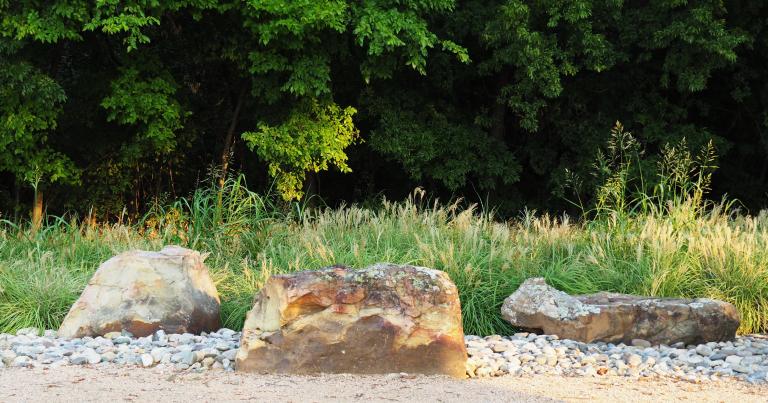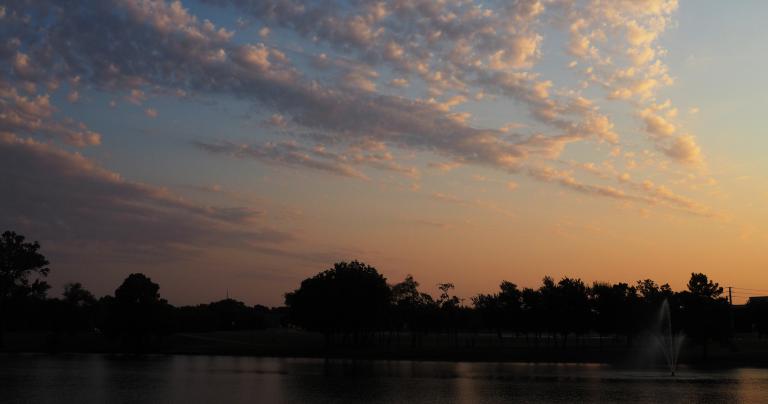I came across an Associated Press story that says “female priests now outnumber male ones in the Church of Sweden.”
My first reaction was a rather unexcited “that’s nice.”
In my Pagan tradition, priesthood is open to all regardless of gender, and I regularly see all genders represented. Druidry has long been a male-dominated movement, but that’s changing, and Eimear Burke – an Irish woman – recently became Chosen Chief of OBOD, the largest Druid order in the world.
Universalists have been ordaining women since Olympia Brown in 1863 and Unitarians since Antoinette Brown Blackwell in 1878. This year Denton UU called A.J. Galazen – a man – to be our interim minister. That feels a bit odd – Denton UU hasn’t had a male minister since Rev. Bill Metzger died in 2010. And even then, Rev. Bill was part of a ministerial team with his wife Rev. Diana Heath.
The references I can find say about 20% of Mainline Protestant ministers are women. The only two non-Pagan religious leaders I follow on Twitter are women: Rabbi Danya Ruttenberg and Lutheran Pastor Nadia Bolz-Weber (both highly recommended).
In my religious world, women in positions of leadership and authority are expected. And while the Church of Sweden exceeding gender parity is a good thing and worthy of being called out, it’s also disappointing that many traditions are still so far behind.
Meanwhile, Roman Catholics and Southern Baptists – the two largest Christian denominations in the United States – still refuse to ordain women.
And that brings us to the point of this essay.
Religion as a mirror of society
In response to this news, Rev. Elisabeth Oberg Hansen said “it’s a mirror of the society, in a way. It’s as it should be.”
Rev. Albert Mohler is President of The Southern Baptist Theological Seminary. He’s a fundamentalist and a Calvinist, with political views to match. I read him on a fairly regular basis – I want to know what our religious competitors are thinking. Needless to say, he doesn’t see the news from the Church of Sweden as a good thing. Here’s a quote:
This is exactly what happens when a secular idea such as gender equality, in this sense, is pressed forward in such a sense that it violates Scripture, but nevertheless, mirrors the culture. It just struck me immediately that the words celebrated by this pastor in Sweden are exactly the warning to us. Those are those words, “It’s a mirror of society.” That is exactly what the church is not to be.
The problem here isn’t the literal interpretation of scripture – Southern Baptists do that, but Roman Catholics do not.
The problem is confusing transient cultural norms with eternal truths.
The complicated mixture of religion and culture
As I’ve stated several times recently, religion is much more than what you believe. It’s what you do, who you are, and whose you are. Religion is a collective thing, not an individual thing – it’s what helps bind us together. It’s how we say “this is who we are.”
The Amish are immediately recognizable by their distinctive dress and their rejection of technology. Sikh men wear turbans and carry the kirpan, a ceremonial dagger. Traditionally, Jews and Muslims do not eat pork, while Muslims and Baptists do not drink alcohol.
These distinctions help maintain group identity.
Gender roles and expectations are part of many cultures, and thus part of many religions. Few if any tribal cultures – ancient or contemporary – are egalitarian between men and women. If Baptists and Catholics want to restrict their pastorate / priesthood to men, they have plenty of precedent for doing so.
The question is whether they should. And while I’ll leave the matter of choosing Baptist and Catholic distinctions to Baptists and Catholics, the process of making those choices is very relevant to us as Pagans and polytheists.
Culture changes
Culture is not a fixed thing – look at the evolution of popular music in the 20th century. Look at pictures of typical American street dress and you can easily identify the decade it’s from… up until the 1990s, anyway.
The mainstream culture will always bleed over into religious culture, especially in a religiously diverse society like ours. Sometimes religions accept those changes, while other times they push back. Evangelical church music has shifted from hymns to gospel to rock-based “praise music” – Evangelicals are still arguing about whether that’s a good thing or not.
Our mainstream culture now (mostly) says that women and non-binary people can do anything men can do. Whatever reasons our ancestors may have had for restricting certain roles to men are now outweighed by our respect for the dignity and autonomy of all people to choose their own paths and to participate fully in society.
The question for Baptists and Catholics and their like is “is this what you want your religious distinctiveness to be?” Do you want to rally the faithful around fixed gender roles?
In many cases, that answer is “yes” – for reasons that have more to do with a love of patriarchy than anything else.
But before we Pagans and polytheists get too smug, we need to ask ourselves the same question: what do we want our religious distinctiveness to be?
The need to be approachable and relatable
I read religious conservatives to understand them, not to argue with them. Usually we have such different foundational assumptions about the nature of the Gods and the Universe that debates – even the kind of one-sided internal debates some of us like to play with – are impossible. But in his rebuttal, Rev. Mohler said something that’s flat-out wrong, and it’s leading to the downfall of his denomination.
Here’s a truth. The church can’t mirror the society and minister to the society at the same time. It’s really going to be a choice of one or the other.
I understand what he’s trying to say: his church has different values than the mainstream society and it must hold true to them. Fair enough. Whether those values are in alignment with the teachings of Jesus is a matter for Christians to decide.
But in dismissing women’s ordination, Rev. Mohler has mistaken a cultural norm from 2000 years ago for eternal truth. And since his church teaches that women are not equal to men and that homosexuality is a sin and not a natural orientation, people who see things differently are leaving his church. Catholic women have long ignored the instructions of their celibate male clergy on sexuality, and now many of them are leaving too.
Every religion must have its non-negotiables, the things that make it unique and thus give it a reason to exist.
But what do you want to make non-negotiable in your religion? A cultural norm that changed long ago? Or the values and virtues of our Gods and ancestors?
Building on virtues and values, not anachronistic culture
I’m inspired by the religions of my pre-Christian ancestors. That should be obvious from the header of this blog – I’m a Pagan and a Druid. But my goal is not to re-create their religions as they were.
I see too many people who insist “this is what our ancestors did – this is what we should do!” Of course, many of them are basing their ideas about our ancestors on bad history, misinformation, and popular entertainment: Viking-wannabees, I’m looking at you.
I wear a white robe in ritual, but my Druidry is more concerned with honoring my Gods and ancestors, respecting the land, and caring for my community. At the end of the day I’m not an Iron Age Celt, I’m a 21st century American. And while there’s a lot wrong with 21st century American culture, it won’t be solved with appeals to ancient dress and music. It certainly won’t be solved with outdated gender roles and sexual morals.
Our concepts of gender and gender roles have changed, and they may change again. But our virtues are eternal: hospitality and reciprocity, honesty and courage, kindness and respect, and many more. Let’s build our identity around their promotion and embodiment.
Let’s build an identity around our practices: worshipping the Gods, honoring our ancestors, and living in harmony with the Earth and all her creatures.
Let’s be inspired by the ways of our ancestors, but let’s build a religion for here and now, not for a time that’s long passed and in many ways, never was.


















